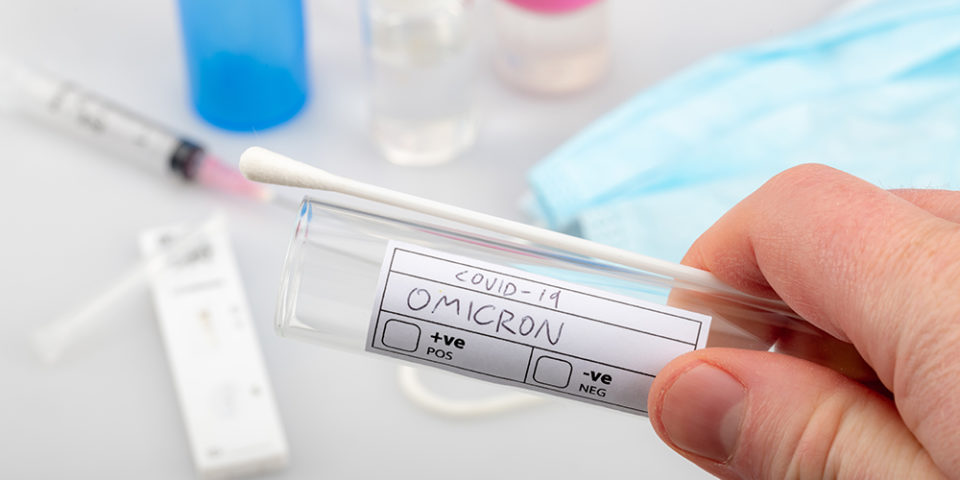What to know about the new omicron variant
Omicron was recently named a variant of concern by the World Health Organization. Infectious disease expert Helmut Albrecht, MD, explained what is known about this strain of the COVID-19 virus.
What do we know about omicron?
It’s spreading quickly. According to one region in South Africa where there were a significant number of cases, the virus was able to double patient numbers every five days. “This is the first variant that can replace delta and it can replace it at an alarming rate,” Dr. Albrecht said. “Since this variant was able to replace delta so quickly, this means it’s either fitter or less restricted by immunity.”
It has many more mutations than delta. But it’s easier to detect. “It has a mutation that causes a signal in a certain area of the virus. So, we don’t have to sequence the entire virus. We can find it in a preliminary test that’s done very quickly.”
Dr. Albrecht said there’s a lot we don’t yet know about this virus, including how lethal it is and how well it will evade protection afforded by antibody cocktails, previous infections or vaccines. Based on the data so far, this is what he expects:
- Omicron will likely impact antibody cocktails such as Regeneron very significantly, making them much less effective.
- Previous infection will likely not protect you even if you were infected with the delta variant.
- Vaccines will retain some effect, probably significant effect, but it will be less than against other virus strains. It will be significantly more than not having protection, however.
“One of the biggest concerns is how it remained undetected until it had 30+ mutations. This means we’re still not testing enough. It remained undetected until it got into a country that had a very good surveillance system,” he said.
What can we do to protect ourselves against the omicron variant?
“This is a variant of concern, not a variant of panic,” Dr. Albrecht said. “It’s what viruses do and what we’re prepared for this virus to do. It is, however, a simple reminder that ignoring the virus is not going to work. Whether we are tired of the virus or not really doesn’t matter. The virus has not yet tired of us and we’ll have to continue to fight this.”
How do we fight the virus?
- Take precautions. It’s clear that masks and hand hygiene still work.
- Get vaccinated. Get your immune system ready. Boosting will help, but the first shots are much more important.
- Be careful, especially around unvaccinated, elderly and immunocompromised people. If you’re symptomatic, don’t go out or interact with others.
If you are wondering if you should avoid gathering with others, Dr. Albrecht said to make your own risk assessment. “Listen to the data and then make your decisions. Each variant is a little better at infecting unprotected people and, therefore, it will hurt unvaccinated people more than vaccinated. The virus only wants to multiply and can do that better if we don’t take precautions.”
Have questions about the COVID-19 vaccine?
Find answers to frequently asked questions about the COVID-19 vaccine, including how to get the shot.


